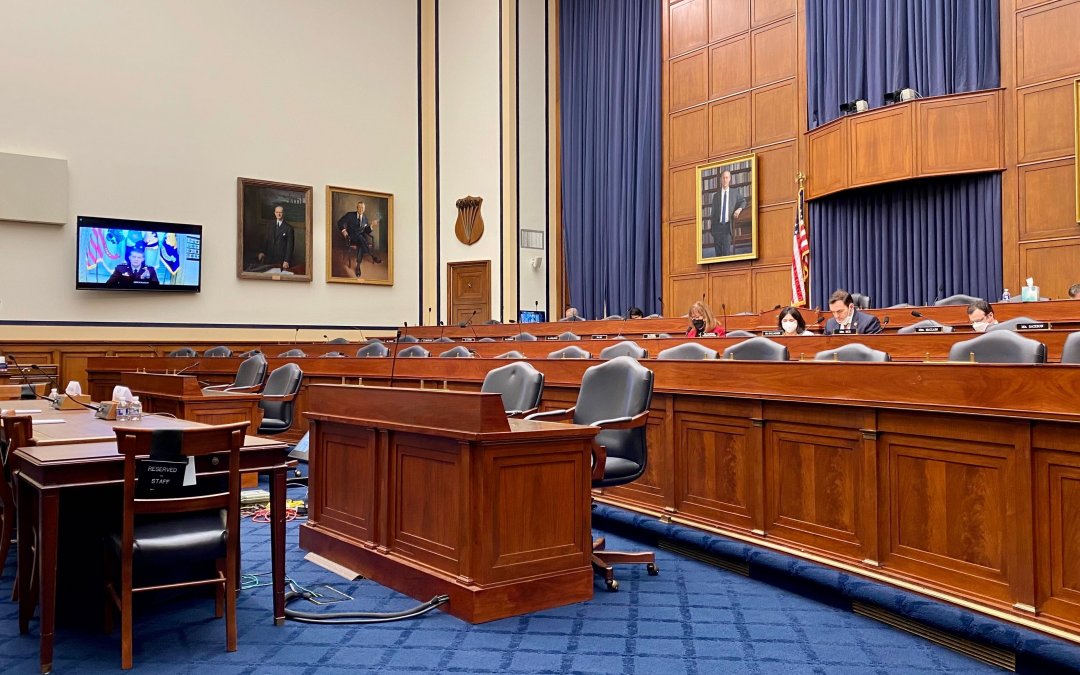WASHINGTON – National Guard leaders told House lawmakers this week they don’t have the resources to better investigate sexual assault cases. But lawmakers wanted more accountability.
“No longer can the National Guard hide behind its unique status,” said Rep. Jackie Speier (D-Calif.), who chairs the House Armed Services subcommittee on Military Personnel, during a hearing Wednesday. “The spotlight of Congress is on you.”
Reported sexual assaults in the National Guard increased by more than 250 percent between fiscal years 2009 and 2019. Though an independent review panel made 82 recommendations for better prevention and accountability measures, none have been implemented, Army Gen. Daniel Hokanson, chief of the National Guard Bureau, told lawmakers.
“Many of those require resources we don’t have,” he said.
“The U.S. government provides 26 billion dollars a year to the National Guard,” said Speier, adding: “There is not accountability.”
The National Guard must take care of their own, Speier said, citing the case of Lt. Col.Teresa James, who was medically discharged with PTSD after an alleged rape by her superior. James said she was later retaliated against for reporting her assault. Her alleged assailant was never charged.
At the time of the hearing, Brig. Gen. Charles Walker, director of the Office of Complex Investigations, said he did not know whether James’ assailant was still serving in the Guard. West Virginia’s Adjutant Gen. James Hoyer, who investigated the case, told NBC Washington at the time the officer resigned “in lieu of adverse action.”
Unlike active-duty military, the Guard doesn’t have criminal jurisdiction over its members when they are not federalized or activated by the President, meaning the Guard relies on local law enforcement to investigate sexual assaults.
“If local law enforcement does not investigate,” Hokanson said in his opening statement, “guard victims and commanders would have no clear means to engage in fact finding.”
Starting in 2013, the National Guard Bureau Office of Complex Investigations gave adjutants general, the chief military administrative officer, the ability to investigate internally, in hopes of closing this investigation gap.
Since 2013, OCI has investigated 800 cases, Hokanson said in his opening statement.
But the OCI isn’t enough, according to Speier, who noted that in Wisconsin, “there are 30 cases over the course of five or six years that were not pursued.”
“It’s simply being slow-rolled to the point where demands for accountability disappear,” said Rep. Chrissy Houlahan (D-Pa.).
Rep. Mike Gallagher (R-Wis.) made a similar point.
“The timeliness of investigations wasn’t where they needed to be,” said Gallagher, referencing the Guard’s past sexual assault reports.
A solution with more problems
Access to OCI is already limited, according to Speier.
“A basic internet search for information on OCI provides no publicly available information about the office, its purposes or how to contact OCI officials,” Speier said. “There’s no place that [victims] can Google on the internet to find out about your office.”
Walker said this is because local law enforcement is “the first line of defense” for reporting sexual assault in the Guard.
“OCI is not a law enforcement or criminal investigation asset,” Hokanson said in his opening statement, “and an OCI administrative investigation is not a substitute for a criminal investigation.”
Even if OCI finds a Guard member guilty of committing sexual assault, there’s not significant recourse, Walker said.
“We have very limited remedies for criminal activity,” Walker said. “We can discharge the person, but there’s no incarceration, there’s no registry for a sex offender, there’s nothing.”
Speier wondered at what point lawmakers should discuss Guard funding to put pressure on accountability.
“It looks like you don’t have anything but persuasion on your side,” said the chair, adding: “At what point do we freeze the money?”
Speier told Medill News Service on Wednesday that this would likely be the first of many hearings on the matter.


